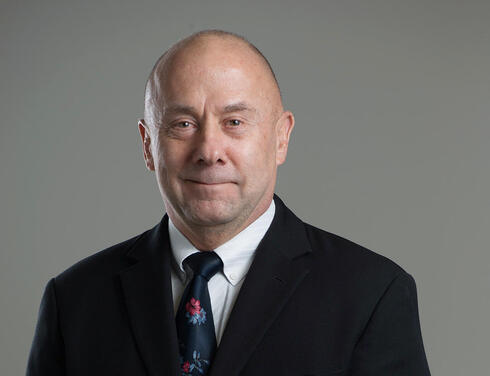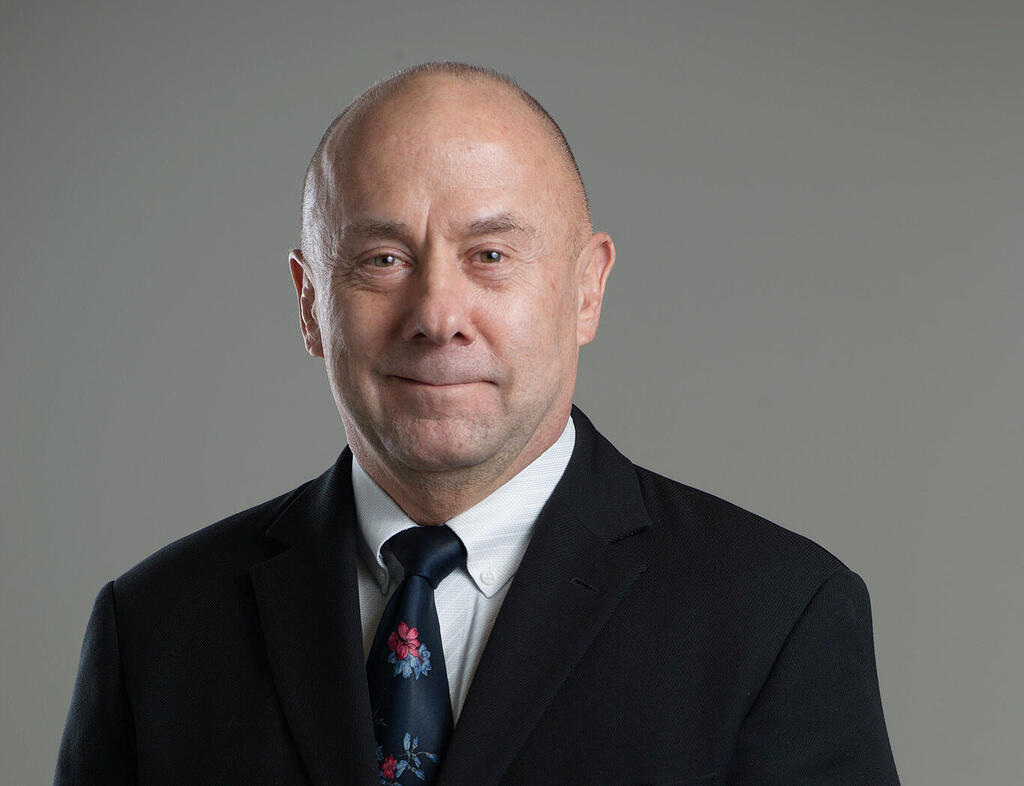
Tower shutting down one Israeli chip factory, pegs hopes on Indian market
CEO Russell Ellwanger said all of the employees from Fab 1 in Migdal Ha’Emek will receive offers to either work in Fab 2 or one of the factories abroad. "There's no point in keeping a factory alive if it's operating at a loss," said Ellwanger. "I've never been more bullish on Tower's future"
The years 2022 and 2023 look to be two wasted years for Tower Semiconductor, but according to Russell Ellwanger, the veteran and dominant CEO of the Israeli chip manufacturer, appearances can be deceiving. Exactly two years ago, in February 2022, Intel announced its $5.4 billion purchase of Tower, intending to anchor its new chip manufacturing division with the esteemed Israeli company.
However, the deal encountered resistance from the Chinese regulator, who perceived it as a threat to local chip manufacturing plants, leading to its cancellation last August. Despite receiving $313 million in compensation from Intel, Tower has visibly stagnated during the interim period.
Ellwanger, who has held his position for 18 years, broke his silence on Wednesday with the release of Tower's 2023 Q4 financial reports. "I jest that the Intel ordeal was a victory plucked from the jaws of failure," Ellwanger quipped, before pivoting to business matters. "The near-sale to Intel provided a significant catalyst for the company. I've never been more bullish on Tower's future. Despite assumptions of my retirement post-Intel deal, I am fully committed to staying; there's much work ahead."
Tower always had superb technology, but its production capacity often lagged behind. “Through Intel and relying on its production capacity, we reached customers that we would not have reached otherwise. Although Intel was not involved in the management of Tower in the period before the cancellation of the deal, because it was not allowed to do so according to the law, we did get an opportunity to work with the potential customers and we also increased the production capacity to meet the demands that would arise. If we hadn't embarked on this journey, we wouldn't have been exposed to these great opportunities," said Ellwanger.
Post-deal cancellation, Tower expanded its production capacity through a "compensation deal" with Intel which will see it produce chips at its Albuquerque factory in the U.S. and receive incentives through the American CHIPS act.
As China and the U.S. intensify their trade war and with China's alignment with the Iranian-Russian axis, establishing chip factories beyond China is crucial. But while the world is embroiled in the battle for chip factories, it turns out that Israel is actually not in the game. When asked if Tower plans to establish a new plant in Israel, Ellwanger almost chuckles, "There is no subsidy in Israel that would make establishing a plant here profitable," he explains. "The United States offers a grant of 35% of establishment costs, India gives 75%, while Israel currently provides only a 9% grant, compared to the 34% we received previously."
Not only is Tower refraining from building a new factory in Israel to bolster its production capacity, but it also announced the closure of Fab 1, Tower's inaugural chip factory in Migdal Ha'Emek. Ellwanger deems it a necessary step, stating, "There's no point in keeping a factory alive if it's operating at a loss. We decided to close it before it adversely affects our numbers." He reassures, "No Tower employee will be laid off; they'll receive offers to relocate to Fab 2, which will undergo expansion this year, or to our factories abroad."
Ellwanger emphasizes his approach, "We didn't lay off employees during the pandemic or the challenging previous year. I don't believe in layoffs for financial gain. If you prioritize employees, customers will be satisfied, and shareholders will prosper."
Tower employs 1,500 in Migdal Ha’Emek, making it the city’s largest employer and one of the largest employers in all of the north of Israel.
Meanwhile, Tower is increasing production capacity at Fab 2 in Migdal Ha'Emek by 22%, despite it being two decades old. Ellwanger’s mention of India's incentives isn't coincidental. Following the cancellation of the Intel deal, speculations emerged that Tower would rekindle ties with India. According to reports in the Indian media, Tower is vying for a contract to construct a new chip factory in the country worth $8 billion. "Of everything that was reported I can only confirm that I met with the Indian IT minister a few months ago," Ellwanger acknowledges.
Tower has been connected with setting up chipmaking factories in India several times over recent years. In May 2022 it was announced that it would be the main partner, responsible for technology, in a consortium of companies that would establish a $3 billion chip manufacturing plant in the country.
As Tower's Indian prospects unfold, one of its Japanese plants, close to the epicenter of the recent earthquake on January 1, 2024, sustained damage and took a month to resume full operations.
Tower provided a weak forecast for the first quarter of 2024, predicting revenues of only $325 million. This is compared to revenues of $352 million in the last quarter of 2023, which were slightly higher than forecasts, but reflect continuous erosion throughout the year.
In the third quarter of 2023, revenues reached $358 million and in the fourth quarter of 2022 they stood at $403 million. In 2023 as a whole, revenues stood at $1.42 billion, a 15% decrease compared to 2022.
Tower's profitability has also eroded, although at the annual level the compensation from Intel allowed Tower to present an operating profit of $547 million compared to an operating profit of $312 million in 2022.
The net profit was $518 million compared to a profit of $265 million in 2022, but after deducting the compensation, the net profit actually decreased. Referring to the performance in 2023, Ellwanger recognized signs of recovery in several segments of the chip market and estimated that, despite the lukewarm forecast for the first quarter, Tower will grow every quarter throughout the coming year. Tower shares climbed on Wednesday following the report, with the company crossing a market cap of $3.5 billion for the first time since last August.














